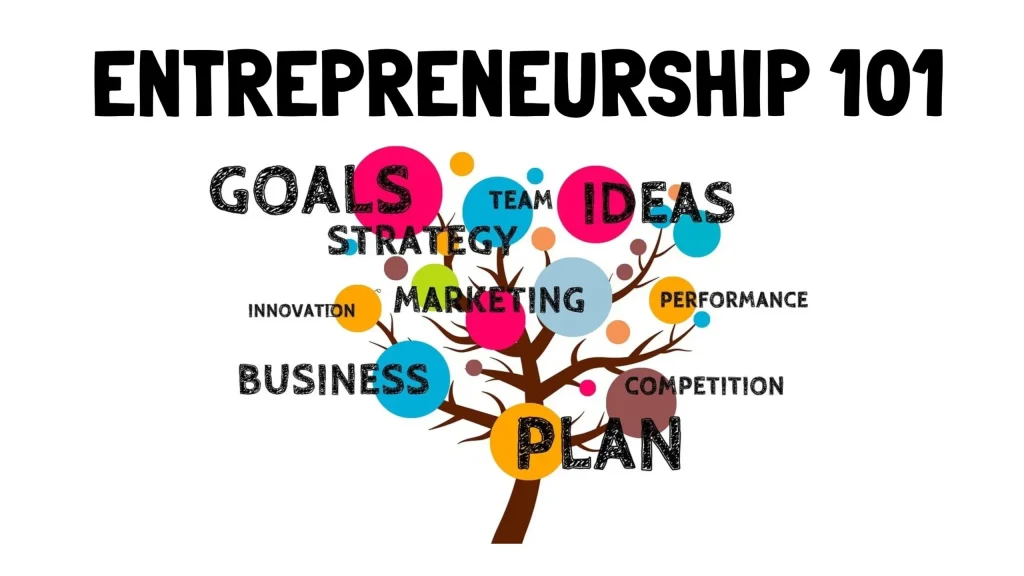Entrepreneurship 101 is more than a course title—it’s a practical blueprint for turning ideas into viable, growing ventures. In today’s fast-changing economy, aspiring founders need essential startup skills and the discipline to execute. This guide highlights product-market fit as a keystone, helping you align customer needs with your offering. By embracing these essentials, you’ll be better prepared to validate ideas, attract customers, and build a sustainable business. The emphasis on practical decision-making and iterative learning keeps you focused on outcomes over theory.
A practical primer on new venture creation reframes this guide into a founder’s toolkit for turning ideas into customers. Instead of focusing on a single course label, the material emphasizes a repeatable process: hypothesis formation, rapid experimentation, and learning from real users. Key elements include a clear value proposition, early market validation, and disciplined budgeting that keeps development under control. The approach blends strategy with execution, covering customer discovery, go-to-market thinking, and the mechanics of securing finance in a thoughtful, risk-aware way. By framing entrepreneurship as a practical journey—from problem discovery to customer adoption and sustainable growth—you’ll gain confidence to iterate toward real demand.
Entrepreneurship 101: Mastering Essential Startup Skills for Product-Market Fit and Growth
Entrepreneurship 101 is more than a course title—it’s a practical blueprint for turning ideas into viable, growing ventures. By embracing essential startup skills and the broader entrepreneurship basics, you’ll build the discipline to test hypotheses, engage real customers, and pursue a path toward product-market fit with clarity and rigor.
This subheading centers on the core competencies that separate startup success from stagnation: customer discovery, lean execution, and disciplined experimentation. By focusing on essential startup skills—such as validating problems, iterating rapidly, and designing a compelling value proposition—you align product development with proven customer needs, increasing the odds of meaningful growth and sustainable profitability. The journey is guided by a data-driven mindset that makes entrepreneurship basics practical, not ceremonial.
Together, these elements set a foundation for attracting early traction and building a scalable business. When you couple a strong commitment to product-market fit with sound funding basics and prudent financial discipline, you create a compelling narrative for investors and customers alike while keeping your team focused on outcomes rather than vanity metrics.
Entrepreneurship 101: From Validation to Market Impact—A Roadmap for Startup Success Skills
Validation isn’t a one-off milestone; it’s an ongoing loop that transforms ideas into validated opportunities. Through hypothesis-driven planning, lightweight experiments, and frequent customer conversations, you can prove or refine your assumptions about customer segments, pricing, and channels. This approach embodies startup success skills by turning uncertainty into a structured process that accelerates progress while preserving capital and momentum.
As you move toward product-market fit, invest in a clear value proposition and a go-to-market strategy that resonates at each customer journey stage. Map touchpoints, align pricing with perceived value, and measure real signals like retention and willingness to pay. These steps demonstrate entrepreneurship basics in action, ensuring that every decision—whether about product features or marketing channels—is guided by customer outcomes and validated data. When combined with prudent funding basics, this discipline supports sustainable growth rather than reckless expansion.
Ultimately, this path emphasizes leadership, teams, and operations as you scale. Building an execution-focused culture, refining the business model, and maintaining financial discipline are all part of the essential startup skills that translate validated ideas into durable impact. With Entrepreneurship 101 as your framework, you’ll be prepared to turn early wins into a scalable venture that thrives over time.
Frequently Asked Questions
What is Entrepreneurship 101, and how does it help develop essential startup skills and entrepreneurship basics?
Entrepreneurship 101 is a practical blueprint for turning ideas into viable ventures. It emphasizes essential startup skills and entrepreneurship basics—covering mindset, validation, hypothesis‑driven planning, and customer discovery. By applying rapid feedback loops and data‑driven decisions, you can validate problems, refine your value proposition, and build a sustainable business that attracts customers and investors.
How can Entrepreneurship 101 guide me toward product-market fit and provide a solid foundation in funding basics for a new startup?
Entrepreneurship 101 treats product-market fit as a dynamic, testable state. It guides you through early customer interviews, a clear value proposition, lean MVPs, and iterative development to steer product decisions toward real demand. The framework also covers funding basics—cash flow management, simple financial models, and prudent funding options—helping you extend runway, demonstrate traction, and pursue investors with a clear path to profitability.
| Section | Key Points |
|---|---|
| Introduction |
|
| Foundational Mindset and Validation |
|
| Customer Discovery and Product-Market Fit |
|
| Business Model and Value Proposition |
|
| Product Development and Lean Execution |
|
| Sales, Marketing, and Growth Mindset |
|
| Funding Basics and Financial Discipline |
|
| Leadership, Talent, and Operations |
|
| Legal, Risk, and Customer Trust |
|
Summary
Table overview completed.



